N-Methyl-2-pyrrolidone
Synonym(s):NMP;1-Methyl-2-pyrrolidinone;1-Methyl-2-Pyrrolidone;N-Methyl-2-pyrrolidinone,NMP, FM approval;N-Methyl-2-Pyrrolidinone,NMP, Methyl Pyrrolidone
- CAS NO.:872-50-4
- Empirical Formula: C5H9NO
- Molecular Weight: 99.13
- MDL number: MFCD00003193
- EINECS: 212-828-1
- SAFETY DATA SHEET (SDS)
- Update Date: 2025-12-18 17:17:19
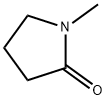
What is N-Methyl-2-pyrrolidone?
Description
N-Methyl-2-pyrrolidone is an aprotic solvent with a wide range of applications: petrochemical processing, surface coating, dyes and pigments, industrial and domestic cleaning compounds, and agricultural and pharmaceutical formulations. It is mainly an irritant, but has also caused several cases of contact dermatitis in a small electrotechnical company.
Chemical properties
N-Methyl-2-pyrrolidone is a colourless or light yellow liquid with an amine odour. It can undergo a number of chemical reactions even though it is accepted as a stable solvent. It is resistant to hydrolysis under neutral conditions, but strong acid or base treatment results in ring opening to 4-methyl aminobutyric acid. N-Methyl-2-pyrrolidone can be reduced to 1-methyl pyrrolidine with borohydride. Treatment with chlorinating agents results in amide formation,an intermediate which can undergo further substitution, while treatment with amyl nitrate yields the nitrate. Olefins can be added to the 3 position by treatment first with oxalic esters, then with appropriate aldehyes (Hort and Anderson 1982).
The Uses of N-Methyl-2-pyrrolidone
N-Methyl-2-pyrrolidone is a polar solvent that is used in organic chemistry and polymer chemistry. Large scale applications include the recovery and purification of acetylenes, olefins, and diolefins, gas purification, and aromatics extraction from feedstocks.N-Methyl-2-pyrrolidone is a versatile industrial solvent. NMP is currently approved for use only in veterinary pharmaceuticals. The determination of the disposition and metabolism of NMP in the rat will contribute toward understanding the toxicology of this exogenous chemical which man may likely be exposed to in increasing amounts.
The Uses of N-Methyl-2-pyrrolidone
N-Methyl-2-pyrrolidone (NMP) is a very strong solubilizing agent and has important applications in different fields of industry. NMP can dissolve organic and inorganic compounds equally or better than chlorofluorocarbon solvents. Therefore, NMP is used in various industrial fields as a cleaning or release agent.
NMP is replacing 1,1,1-trichloroethane in metal cleaning applications due to the worldwide environmental pollution problems associated with chlorinated solvents.
NMP is a polar aprotic solvent frequently used in industrial and pharmaceutical settings. NMP is remarkably effective in maintaining dispersions of different types of nanomaterials. Given its safety profile at established doses and its competence to solubilize multiple types of drugs, NMP has become a common solvent component of in situ forming implants for long-term drug delivery. NMP acts as a co-solvent and complexing agent in different embodiments, and it has been reported to increase the solubility and permeability of multiple compounds. Transcriptional activity of bromodomain-containing proteins is compromised by NMP interaction with the binding pocket of different bromodomains, which would contribute to its anti-myeloma and immunomodulatory activity.
The Uses of N-Methyl-2-pyrrolidone
Solvent for high-temperature resins; petrochemical processing, in the microelectronics fabrication industry, dyes and pigments, industrial and domestic cleaning compounds; agricultural and pharmaceutical formulations
The Uses of N-Methyl-2-pyrrolidone
N-Methyl-2-pyrrolidone, is useful for spectrophotometry, chromatography and ICP-MS detection.
What are the applications of Application
1-Methyl-2-pyrrolidinone is a pyrrolidinone compound
Definition
ChEBI: N-methylpyrrolidin-2-one is a member of the class of pyrrolidine-2-ones that is pyrrolidin-2-one in which the hydrogen attached to the nitrogen is replaced by a methyl group. It has a role as a polar aprotic solvent. It is a N-alkylpyrrolidine, a lactam and a member of pyrrolidin-2-ones.
Production Methods
N-Methyl-2-pyrrolidone is manufactured by the reaction of buytrolactone with methylamine (Hawley 1977). Other processes include preparation by hydrogenation of solutions of maleic or succinic acids with methylamine (Hort and Anderson 1982). Manufacturers of this chemical include Lachat Chemical, Inc, Mequon, Wisconsin and GAF Corporation, Covert City, California.
Synthesis Reference(s)
Tetrahedron Letters, 24, p. 1323, 1983 DOI: 10.1016/S0040-4039(00)81646-9
General Description
N-Methyl-2-Pyrrolidone (NMP) is a powerful, aprotic solvent with high solvency, and low volatility. This colorless, high boiling, high flash point and low vapor pressure liquid carries a mild amine-like odor. NMP has high chemical and thermal stability and is completely miscible with water at all temperatures. NMP can serve as a co-solvent with water, alcohols, glycol ethers, ketones, and aromatic/chlorinated hydrocarbons. NMP is both recyclable by distillation and readily biodegradable. NMP is not found on the Hazardous Air Pollutants (HAPs) list of the 1990 Clean Air Act Amendments.
Air & Water Reactions
Soluble in water.
Reactivity Profile
This amine is a very mild chemical base. N-Methyl-2-pyrrolidone does tend to neutralize acids to form salts plus water. The amount of heat that is evolved per mole of amine in a neutralization is largely independent of the strength of the amine as a base. Amines may be incompatible with isocyanates, halogenated organics, peroxides, phenols (acidic), epoxides, anhydrides, and acid halides. Flammable gaseous hydrogen is generated by amines in combination with strong reducing agents, such as hydrides.
Hazard
Severe skin and eye irritant. Explosive lim-its 2.2–12.2%.
Health Hazard
Inhalation of hot vapors can irritate nose and throat. Ingestion causes irritation of mouth and stomach. Contact with eyes causes irritation. Repeated and prolonged skin contact produces a mild, transient irritation.
Fire Hazard
Special Hazards of Combustion Products: Toxic oxides of nitrogen may be formed in fire.
Flammability and Explosibility
Non flammable
Industrial uses
1) N-Methyl-2-pyrrolidone is used as a general dipolar aprotic solvent, stable and unreactive;
2) for extraction of aromatic hydrocarbons from lubricating oils;
3) for carbon dioxide removal in ammonia generators;
4) as a solvent for polymerization reactions and polymers;
5) as a paint stripper;
6) for pesticide formulations (USEPA 1985).
Other non-industrial uses of N-Methyl-2-pyrrolidone are based on its properties as a dissociating solvent suitable for electrochemical and physical chemical studies (Langan and Salman 1987). Pharmaceutical applications make use of the properties of N-Methyl-2-pyrrolidone as a penetration enhancer for a more rapid transfer of substances through the skin (Kydoniieus 1987; Barry and Bennett 1987; Akhter and Barry 1987). N-Methyl-2-pyrrolidone has been approved as a solvent for slimicide application to food packaging materials (USDA 1986).
Contact allergens
N-Methyl-2-pyrrolidone is an aprotic solvent with a wide range of applications: petrochemical processing, surface coating, dyes and pigments, industrial and domestic cleaning compounds, and agricultural and pharmaceutical formulations. It is mainly an irritant, but it can cause severe contact dermatitis due to prolonged contact.
Safety Profile
Poison by intravenous route. Moderately toxic by ingestion and intraperitoneal routes. Mildly toxic by skin contact. An experimental teratogen. Experimental reproductive effects. Mutation data reported. Combustible when exposed to heat, open flame, or powerful oxidizers. To fight fire, use foam, CO2, dry chemical. When heated to decomposition it emits toxic fumes of NOx.
Chemical property
N-Methyl-2-pyrrolidone (NMP) is an organic compound consisting of a 5-membered lactam. It is a colorless liquid, although impure samples can appear yellow. It is a polar aprotic solvent with similar properties to DMF, DMA, and DMSO. It is a strongly basic solvent miscible with water and other polar solvents such as alcohols, ketones, and chloroform. It has a variety of uses in the manufacture of petroleum products, polymers, pharmaceuticals, and textiles. Despite its desirable properties, its use may decline because it has been identified as a reproductive toxin.
Carcinogenicity
Rats were exposed to N-Methyl-2-pyrrolidone vapor at 0, 0.04, or 0.4 mg/L for 6 h/day, 5 days/week for 2 years.Male rats at 0.4 mg/L showed slightly reduced mean body weight. No life-shortening toxic or carcinogenic effects were observed in rats exposed for 2 years to either 0.04 or 0.4mg/L of N-Methyl-2-pyrrolidone. By the dermal route, a group of 32 mice received an initiation dose of 25mg of N-Methyl-2-pyrrolidone followed 2 weeks later by applications of the tumor promoter phorbol myristate acetate, three times a week, for more than 25 weeks. Dimethylcarbamoyl chloride and dimethylbenzanthracene served as positive controls. Although the N-Methyl-2-pyrrolidone group had three skin tumors, this response was not considered significant when compared with that of the positive controls.
Metabolic pathway
Rats are administered radio-labeled N-methyl-2- pyrrolidinone (NMP), and the major route of excretion by rats is via the urine. The major metabolite, representing 70-75% of the administered dose, is 4-(methylamino)butenoic acid. This unsaturated intact product may be formed from the elimination of water, and a hydroxyl group may be present on the metabolite prior to acid hydrolysis.
Metabolism
Male Sprague-Dawley rats were given a single intraperitoneal injection (45 mg/kg) of radiolabeled 1-methyl-2-pyrrolidone. Plasma levels of radioactivity and compound were monitored for six hours and the results suggested a rapid distribution phase which was followed by a slow elimination phase. The major amount of label was excreted in the urine within 12 hours and accounted for approximately 75% of the labelled dose. Twenty-four hours after dosage, cumulative excretion (urine) was approximately 80% of the dose. Both ring- and methyl-labeled species were used, as well as both [14C]- and [3H]-labeled l-methyl-2-pyrrolidone. The initial labeled ratios were maintained during the first 6 hours after dosage. After 6 hours, the liver and intestines were found to contain the highest accumulations of radioactivity, approximately 2-4% of the dose. Little radioactivity was noted in the bile or respired air. High performance liquid chromatography of urine showed the presence of one major and two minor metabolites. The major metabolite (70-75% of the administered radioactive dose) was analyzed by liquid chromatography-mass spectrometry and gas chromatography-mass spectrometry and was proposed to be a 3- or 5-hydroxy-l-methyl-2-pyrrolidone (Wells 1987).
Purification Methods
Dry the pyrrolidone by removing water as the *benzene azeotrope. Fractionally distil at 10 torr through a 100-cm column packed with glass helices. [Adelman J Org Chem 29 1837 1964, McElvain & Vozza J Am Chem Soc 71 896 1949.] The hydrochloride has m 86-88o (from EtOH or Me2CO/EtOH) [Reppe et al. Justus Liebigs Ann Chem 596 1 1955]. [Beilstein 21 II 213, 21 III/IV 3145, 21/6 V 321.]
Properties of N-Methyl-2-pyrrolidone
| Melting point: | -24 °C (lit.) |
| Boiling point: | 202 °C (lit.)
81-82 °C/10 mmHg (lit.) |
| Density | 1.028 g/mL at 25 °C (lit.) |
| vapor density | 3.4 (vs air) |
| vapor pressure | 0.29 mm Hg ( 20 °C) |
| refractive index | n |
| Flash point: | 187 °F |
| storage temp. | Store at +5°C to +30°C. |
| solubility | ethanol: miscible0.1ML/mL, clear, colorless (10%, v/v) |
| form | Liquid |
| appearance | Colorless liquid |
| pka | -0.41±0.20(Predicted) |
| color | ≤20(APHA) |
| PH Range | 7.7 - 8.0 |
| Odor | Slight amine odor |
| PH | 8.5-10.0 (100g/l, H2O, 20℃) |
| explosive limit | 1.3-9.5%(V) |
| Water Solubility | >=10 g/100 mL at 20 ºC |
| Sensitive | Hygroscopic |
| λmax | 283nm(MeOH)(lit.) |
| Merck | 14,6117 |
| BRN | 106420 |
| Dielectric constant | 32.200000000000003 |
| Stability: | Stable, but decomposes upon exposure to light. Combustible. Incompatible with strong oxidizing agents, strong acids, reducing agents, bases. |
| CAS DataBase Reference | 872-50-4(CAS DataBase Reference) |
| NIST Chemistry Reference | 2-Pyrrolidinone, 1-methyl-(872-50-4) |
| EPA Substance Registry System | N-Methyl-2-pyrrolidone (872-50-4) |
Safety information for N-Methyl-2-pyrrolidone
| Signal word | Danger |
| Pictogram(s) |
 Exclamation Mark Irritant GHS07  Health Hazard GHS08 |
| GHS Hazard Statements |
H315:Skin corrosion/irritation H319:Serious eye damage/eye irritation H335:Specific target organ toxicity, single exposure;Respiratory tract irritation |
| Precautionary Statement Codes |
P202:Do not handle until all safety precautions have been read and understood. P261:Avoid breathing dust/fume/gas/mist/vapours/spray. P264:Wash hands thoroughly after handling. P264:Wash skin thouroughly after handling. P302+P352:IF ON SKIN: wash with plenty of soap and water. P305+P351+P338:IF IN EYES: Rinse cautiously with water for several minutes. Remove contact lenses, if present and easy to do. Continuerinsing. P308+P313:IF exposed or concerned: Get medical advice/attention. |
Computed Descriptors for N-Methyl-2-pyrrolidone
| InChIKey | SECXISVLQFMRJM-UHFFFAOYSA-N |
N-Methyl-2-pyrrolidone manufacturer
JSK Chemicals
Cogent Life Science Pvt. Ltd.
New Products
4,4-Difluoropiperidine hydrochloride tert-butyl 9-methoxy-3-azaspiro[5.5]undecane-3-carboxylate Indole Methyl Resin N-Isopropylurea N,N-Dicyclohexylcarbodiimide(DCC) MELDRUMS ACID 5-METHYLISOXAZOLE-4-CARBOXYLIC ACID Magnessium Bis glycinate Zinc ascorbate 1-bromo-2-butyne 2-acetamidophenol 9(10H)-anthracenone Erythrosin B, 4-Piperidinopiperidine 2-((4-morpholinophenylamino) (methylthio) methylene) malononitrile 2,4-dihydroxybenzaldehyde 3-(4-morpholinophenylamino)-5-amino-1H-pyrazole-4-carbonitrile Methyl 2-methylquinoline-6-carboxylate 2,6-dichloro-4-nitropyridine 4-Bromo-2-chlorobenzonitrile 2-(benzylamino)acetic acid hydrochloride 4-(tert-Butoxycarbonylamino)but- 2-ynoic acid 3,4-dihydro-2H-benzo[b][1,4]dioxepine 1-Phenyl-1-cycloprppanecarboxylicacidRelated products of tetrahydrofuran
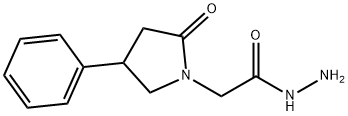

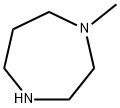

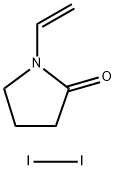
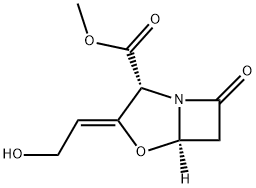
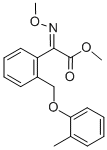
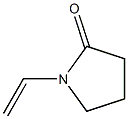
You may like
-
 N Methyl 2 Pyrrolidone 99%View Details
N Methyl 2 Pyrrolidone 99%View Details -
 N Methyl-2-Pyrrolidone 99%View Details
N Methyl-2-Pyrrolidone 99%View Details -
 N-Methyl Pyrrolidone 99%View Details
N-Methyl Pyrrolidone 99%View Details -
 1-Methyl-2-Pyrrolidinone CAS 872-50-4View Details
1-Methyl-2-Pyrrolidinone CAS 872-50-4View Details
872-50-4 -
 1-Methyl-2-pyrrolidinone, 98% 99%View Details
1-Methyl-2-pyrrolidinone, 98% 99%View Details -
 1-Methyl-2-pyrrolidinone, HPLC Grade 99%View Details
1-Methyl-2-pyrrolidinone, HPLC Grade 99%View Details -
 N-Methyl 2 Pyrrolidone CASView Details
N-Methyl 2 Pyrrolidone CASView Details -
 N-Methylpyrrolidone CASView Details
N-Methylpyrrolidone CASView Details
